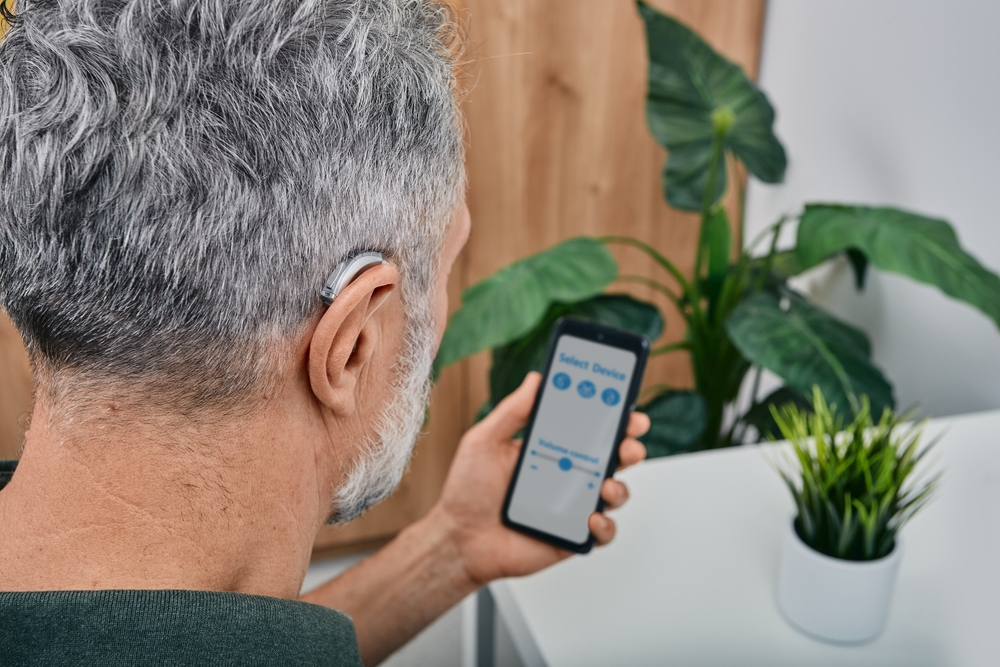
Socializing with friends and family and communicating with co-workers can be negatively impacted by even mild hearing loss, and this also includes day-to-day activities like shopping. However, the benefits of well-calibrated hearing aids can lead to transformative changes.
Top ten reasons to invest in hearing aids
Although enhancing hearing is the evident and primary advantage of hearing aids, their positive impact goes way beyond that. Let’s explore the comprehensive benefits that wearing hearing aids can offer.
Stronger relationships through better communication
Clear communication is the basis of healthy relationships. Untreated hearing loss often results in missed conversations and misunderstandings, which can strain relationships. Hearing aids allow you to participate fully in conversations, improving your ability to connect with others and decreasing feelings of separation or disappointment.
Improved independence
Simple tasks like purchasing groceries or dining out can become challenging with untreated hearing loss, as barriers to communication could develop. Hearing aids empower you to navigate these situations independently by increasing your ability to hear and understand speech in a variety of environments. Having a better sense of independence will help you do things that require improved situational awareness such as driving, for example.
Possibility of higher income
Effective communication is key when you’re dealing with professional situations. Untreated hearing loss can hinder your ability to take part in meetings or discussions fully, potentially impacting job performance and career development. By using hearing aids, you can remain engaged and alert, boosting your productivity and opening doors to career opportunities.
Discomfort from tinnitus can be reduced
Tinnitus, which is a ringing in the ear, often accompanies hearing loss. Hearing aids can offer relief from tinnitus for some people by masking symptoms.
Mitigated cognitive decline
Some research has uncovered a link between neglected hearing loss and cognitive decline, including dementia. It’s possible that using hearing aids to manage neglected hearing loss can reduce the chance of cognitive impairment and help maintain the overall health of the brain.
The pleasure of music
The perception of music will be less pleasant if hearing loss is distorting your perception of it. The depth and richness of musical sounds can be restored by hearing aids which fill in the frequency gaps so you can take pleasure in your favorite songs again.
Boosted confidence
Clear hearing encourages confidence in social connections and professional situations alike. With improved communication abilities, you’ll feel more self-assured and capable, improving your overall quality of life.
Boosted energy levels
Neglected hearing loss forces the brain to work extremely hard to fill in missing sound which can be mentally exhausting. Hearing aids reduce this strain, giving you mental relief and allowing you to enjoy activities without feeling continuously tired.
Awareness and safety can be enhanced
Awareness of one’s surroundings is crucial for safety, whether it’s crossing the road or driving a vehicle. Environmental sounds can be restored by hearing aids, ensuring that your response to things including alarms and approaching vehicles is safe and appropriate.
Setting an example that is positive
You will set a positive example for other people dealing with hearing loss by welcoming hearing aids and demonstrating an approach to health and well-being that is positive. It exhibits a commitment to personal growth and improvement, inspiring those around you.
Get your hearing checked today
While the primary advantage of hearing aids is to boost auditory perception, the ripple effects on other facets of life are profound. Whether it’s fostering stronger relationships, increasing independence, or protecting mental health, the choice to wear hearing aids is a step towards a more rewarding and engaged life.
Take the first step towards hearing better today by scheduling a hearing evaluation with us.
